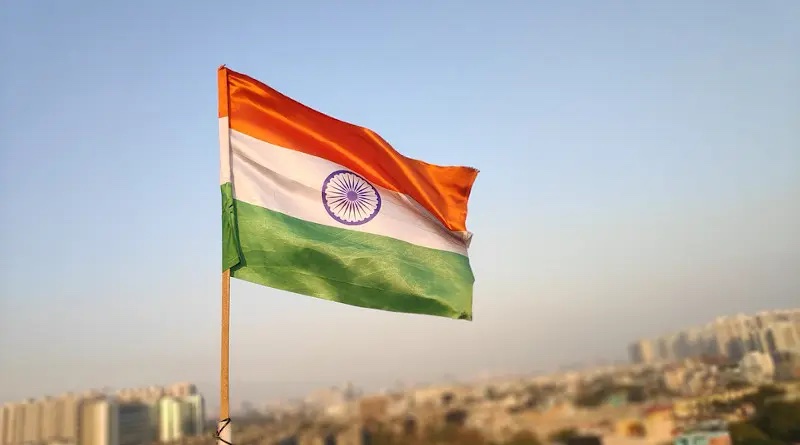Impunity Reigns In India – OpEd
By Nanki Chawla
Once again, it seems India’s pledge to uphold the tenets of human rights has come to nothing. In January this year, Human Rights Watch (HRW) painted a damning picture of the state of human rights in its World Report. The report assessing 90 countries indicts India for allowing impunity for human rights violators, for failing to protect vulnerable communities and victims of abuse and for missing vital opportunities to prove its commitment to human rights internationally. Yet, in the 4 months since the report was published, little has been done.
The report illuminates sickening acts of cruelty and brutality perpetrated by the security forces around the country. Forcible disappearances in Jammu and Kashmir, unlawful killings by Border Security Forces at the Bangladesh border and during counterinsurgency operations in Maoist-controlled states, threats, beatings and deaths of activists and whistleblowers, are just some of the violations mentioned. Most damning of all is HRW’s conclusion that little or nothing has been done to end the impunity of the forces sworn to protect the citizens of this country. Christof Heynes’ visit last month, UN Special Rapporteur on Extrajudicial Killings, reiterated these deep-seated concerns when he mentioned these abuses, particularly focusing on special acts which write impunity into the law.
Only last year, India stood up and solemnly pledged to the Human Rights Council that it “will continue to abide by its national mechanisms… to promote and protect the human rights and fundamental freedoms of all its citizens.” It vowed to uphold the highest standards in the promotion and protection of human rights, promote the empowerment of women, ratify the United Nations treaties against torture and enforced disappearances, abide by the Right to Information Act and strengthen civil society. Yet, little progress has been made – perpetrators of grave human rights violations continue to run free whilst millions of innocents remain hidden in the depths of India’s prisons.
Maja Daruwala, Director of the Commonwealth Human Rights Initiative, points out: “Rights violations take place in all countries but it is the response that matters. Governments must act swiftly and sternly particularly against criminal acts by its own agents but it does not. There is also a high tolerance for illegal behavior within security forces and the police. The senior leadership must speak out and act against bad apples if they really believe in upholding the law.”
A plethora of ‘special’ acts allow for impunity to unreservedly embed itself in daily practice. Even as the Home Minister repeatedly promises to amend and moderate the effects of the Armed Forces Special Powers Act (AFSPA) – a law which provides extensive police powers and wide protections to armed forces operating in vaguely defined “disturbed” areas – no great efforts have been made. Bringing criminal and illegal acts of armed forces, operating in conflict areas, to justice remains absurdly difficult. ‘Special’ acts apart, general protections for government servants written into ordinary law are routinely abused to deliberately delay well-deserved investigation and prosecution. The pace at which the legal system clunks along helps contribute to the culture of ‘getting away’ with abuse under the guise of uniformed authority. Despite the continually piling up evidence, the promised law to severely punish torture remains a pipedream, police reforms are strongly resisted and no overhaul of the criminal justice system is in sight.
Due to India’s new economic clout, its presence and influence on the global stage is more visible than ever before. As a member of both BRICS (Brazil, India, Russia, China and South Africa) and IBSA (India Brazil South Africa Dialogue Forum), India’s human rights stance is now being scrutinised even more closely; the failure to act is noticed and will most definitely be critiqued. As a member of the Human Rights Council, India is positioned at the very forefront of promoting human rights, but credibility can only come if it acts with integrity at home. India’s leadership on human rights is courted by the West as a counter to China, but in reality India’s domestic human rights record repeatedly forces it to be defensive and equivocal on human rights issues.
In light of Katherine Boo’s acclaimed Behind the Beautiful Forevers: Life, Death, and Hope In a Mumbai Undercity which has shaken naïve views of India as an emergent superpower and instead highlighted the rampant corruption and police abuse, the Government of India needs to start taking human rights abuse seriously. Otherwise, damning reports will again humiliate the country as its human rights record comes up at the second cycle of the Universal Periodic Review in the next few months. India must prevent the blows of rights violation and impunity from falling upon individual victims, their families and whole communities. Otherwise, another shaming report will be ignored and suppressed by a power-hungry and cavalier political class, leaving behind an enduring mess of human suffering and abuse throughout the country.
Nanki Chawla works for the Commonwealth Human Rights Initiative in New Delhi, India. She blogs about human rights issues on: www.hamarehaq.wordpress.com, and politics and travel on: www.nankichawla.wordpress.com.


Its easy to criticize and give theoretical suggestions, especially when the same are given sitting at a place which far away from the place where actual atrocities are taking place. Every-body is after AFSPA, but why doesn’t anybody thinks that would our army do without it. It is not unknown that there are certain terrorist sympathizers in the J&K itself, who live within the common people; so in such a case should we let our Army men get slayed? No doubt the certain concerned army officials should be accounted for, for the crimes they have committed, but that does not at all mean that other army men should be punished for the fault of the former. What the army goes through while sitting in dangerous places in J&K cannot be perceived while sitting in the save places of New Delhi. Get real. It seems Indian writers are more bent upon to insult India than foreigners.